The World Health Organization (WHO) has honored the life of Henrietta Lacks, the woman dubbed the ‘mother of modern medicine.’
Lacks died of cervical cancer in 1951, but her legacy lies in the millions of lives she has saved ever since.
Before she passed away at age 31, doctors collected sample cells from her body without her or her family’s consent – a controversial move for which her family is still seeking compensation.
However, the cells, the first to live and multiple outside of the body, led to several medical breakthroughs such as the developments of the polio and human papillomavirus (HPV) vaccines.
In a special ceremony held by global health leaders, Lacks was posthumously given an award to honor her legacy which has helped save ‘countless lives.’
Her 87-year-old son Lawrence Lacks – one of her five children, who was just 17 when she died – received the award on her behalf at a ceremony in Geneva on Wednesday.
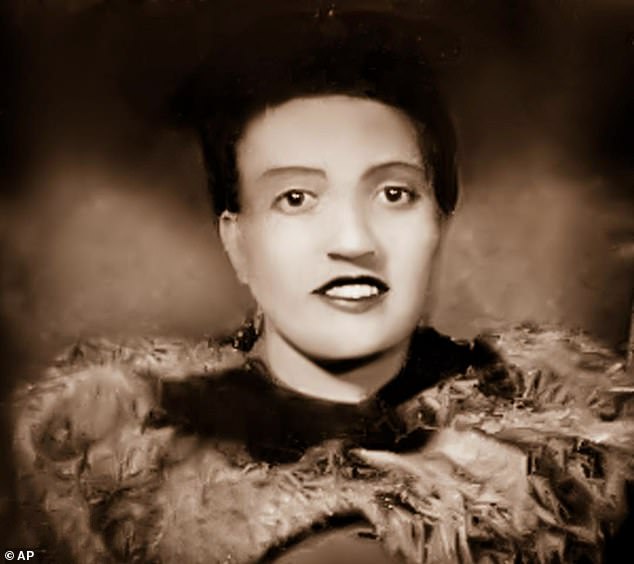
Henrietta Lacks (pictured) is dubbed the ‘mother of modern medicine’ after cells from her body – the first ever found to be able to multiply outside of the body – were used for medical breakthroughs like the polio and HPV vaccines
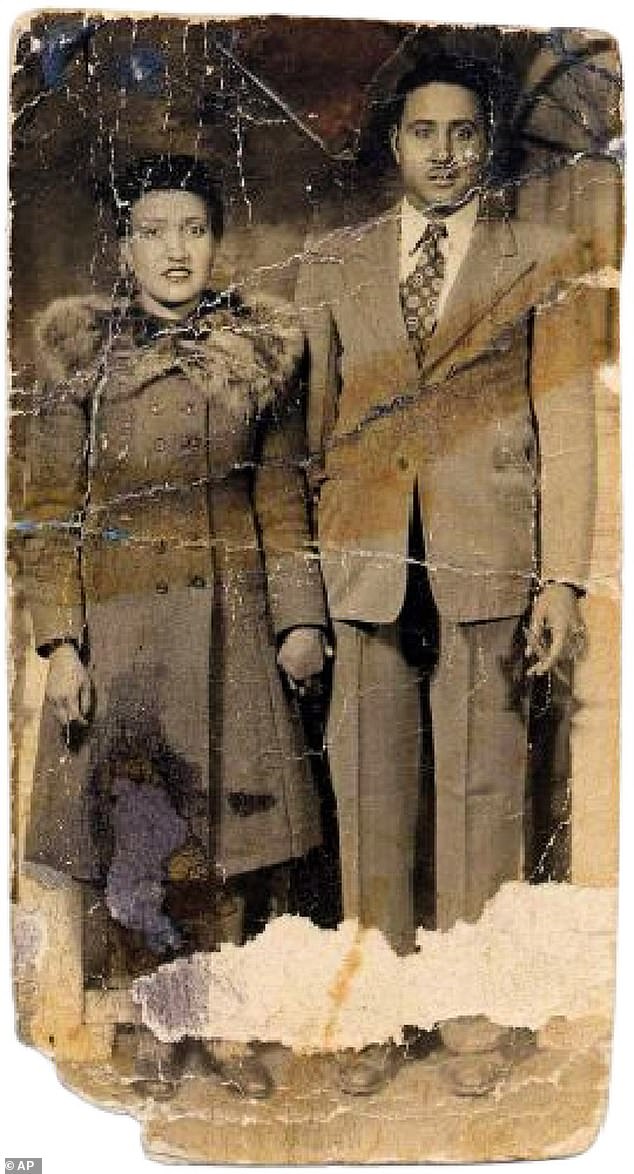
Lacks died in 1951 at only age 31. She was survived by five children, including her son Lawrence, who accepted an honor from the WHO on her behalf this week. Pictured: Lacks and her husband Davis in Baltimore, Maryland in the early 1940s
Lacks, born in 1920 in Roanoke, Virginia, died from an aggressive form of cervical cancer samples at Johns Hopkins.
Her cells were collected by doctors without her or her family’s knowledge.
The cells were sent to a laboratory where they were found to be the first living human cells ever to survive and multiply outside the human body, and became known as ‘immortal’.
Her family has been seeking compensation for the move ever since despite a court ruling in the 1990s hat a person’s ‘discarded tissue and cells’ are not their property and can be used for commercial purposes.
However, family members spoke at the ceremony on Wednesday, thanking the WHO for the posthumous honor.
‘My family stands in solidarity with WHO and our sisters around the world, to ensure that no other wife, mother or sister dies needlessly from cervical cancer,’ said Victoria Baptiste, Lacks’s great-granddaughter.
‘As a registered nurse, I am proud to be here today to honor my great grandmother’s legacy by advocating to ensure equitable access to the breakthroughs that her healer cells have advanced, such as HPV and Covid-19 vaccines.’
‘We are reclaiming her name, and her story and legacy lives on in us, and we thank you for saying her name, Henrietta Lacks.’
Research on the cells led to the polio vaccine, gene mapping and IVF treatment among other advances and resulted in her being named the ‘mother’ of modern medicine.
Studies on the cells also led to the development of the HPV vaccine, which protects against various cancers, including cervical cancer.
The cells became known as HeLa cells, taking the first two letters of Lacks’s first and last names.
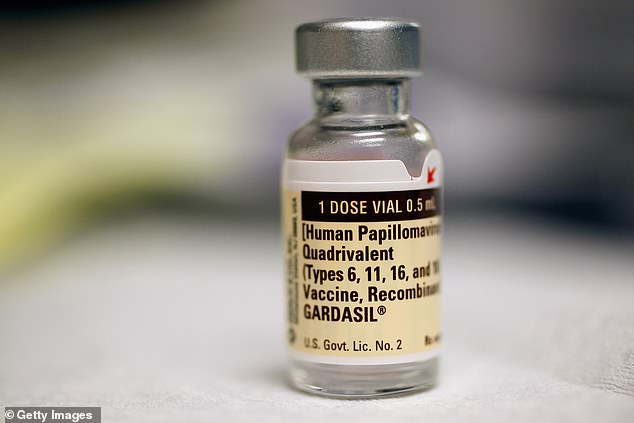
Lack’s cells were crucial in creating the HPV vaccine, which can prevent the virus that causes the cervical cancer that killed Lacks (file photo)
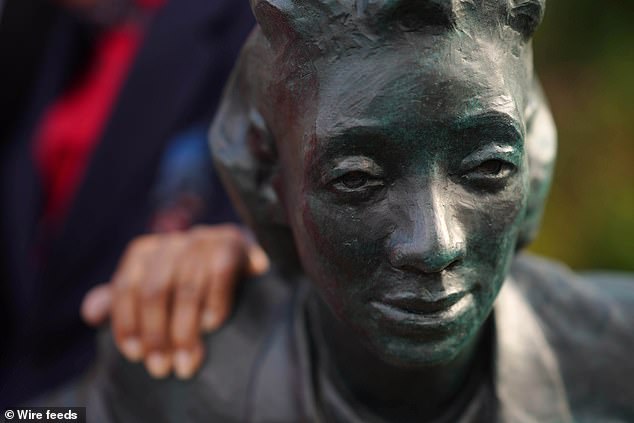
Lacks was honored with a statue (pictured) on the University of Bristol campus in England earlier this month
Speaking at the ceremony, Dr Tedros Adhanom Ghebreyesus, WHO director-general spoke of how the racial inequality Lacks suffered is still an issue.
He also honored other women of color who have contributed to science.
‘Acknowledging the wrongs of the past is essential for building trust for the future, we also recognize the extraordinary potential that her legacy continues to offer,’ Ghebreyesus said.
‘There are many more lives we can save by working for racial justice and equity, we stand in solidarity with marginalized patients and communities all over the world who are not consulted, engaged or empowered in their own care.’
‘We affirm that in medicine and in science, Black Lives Matter, Henrietta Lacks life mattered, and still matters.
‘Today is also an opportunity to recognize those women of color who have made incredible, but often unseen contributions to medical science.’
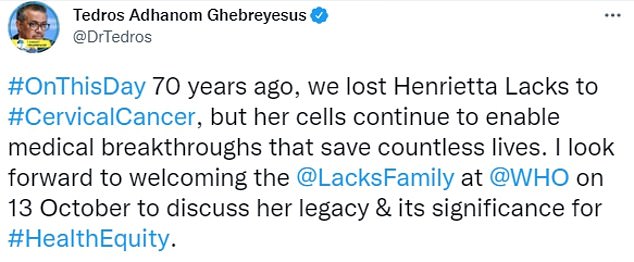
He also took to Twitter to honor her legacy on Monday.
HeLa cells are used in almost every major hospital and science-based university in the world.
More than 50,000,000 metric tons of HeLa cells have been distributed around the world, the subjects of more than 75,000 studies
But it was only in 1975 that by chance the family found out about her legacy.
Earlier this month, a statue of Lacks was unveiled at the University of Bristol
Source link : https://www.dailymail.co.uk/health/article-10089331/WHO-pays-tribute-Henrietta-Lacks-world-changing-contribution.html











